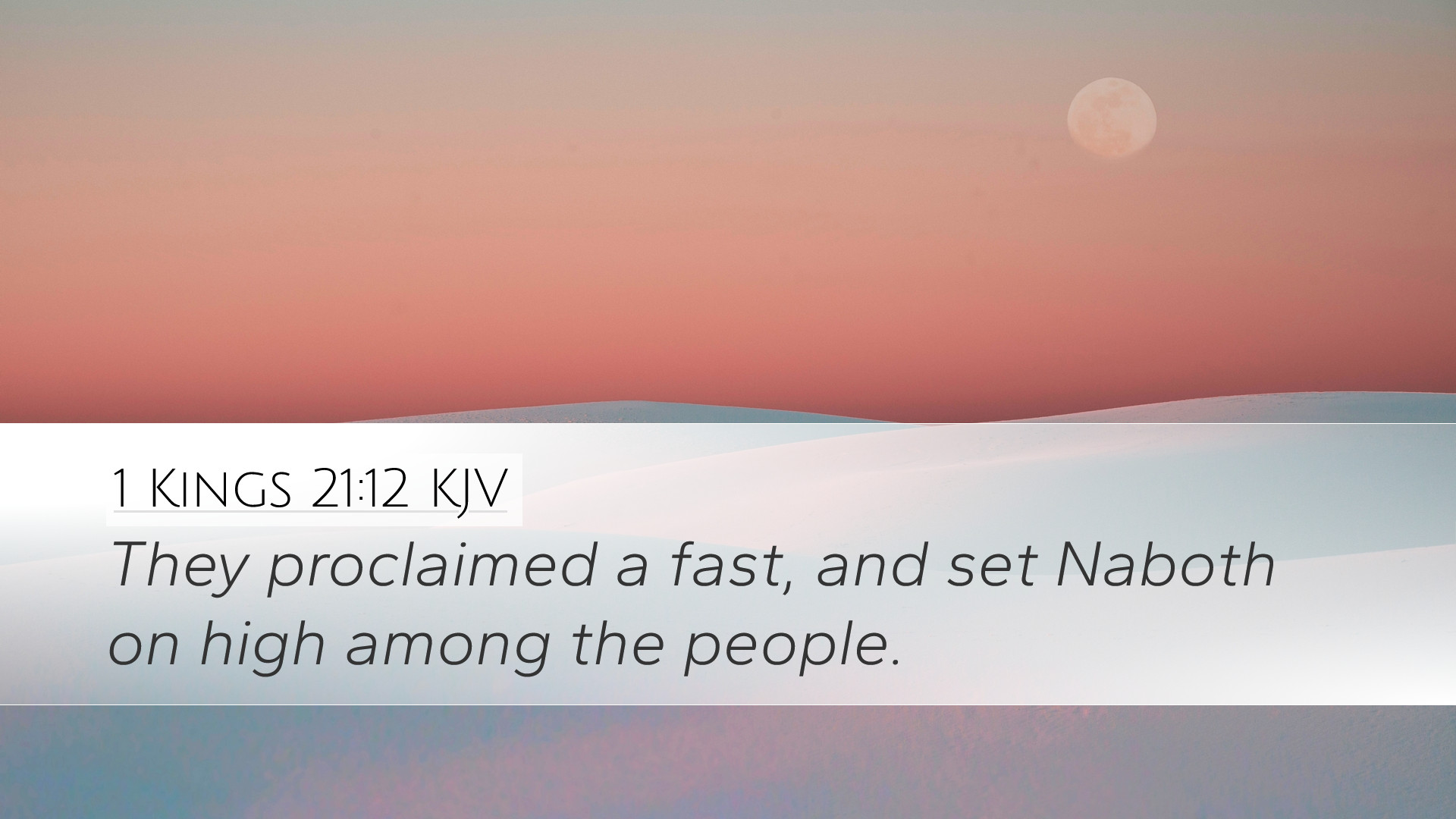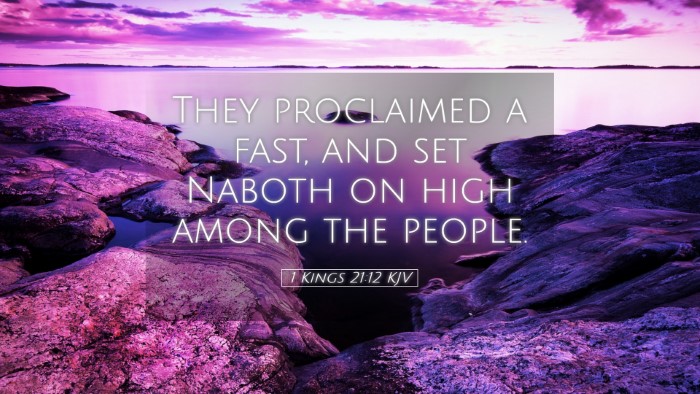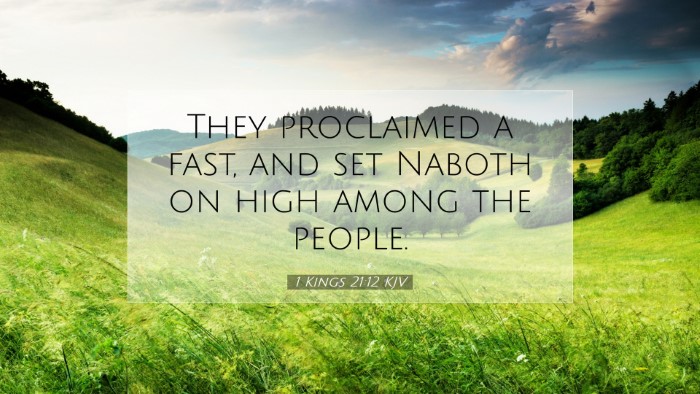Commentary on 1 Kings 21:12
Bible Verse: "They proclaimed a fast, and set Naboth on high among the people."
Introduction
The story of Naboth’s vineyard encapsulates profound moral and spiritual lessons. As we delve into 1 Kings 21:12, we gain insight into the political and social dynamics of Israel during the reign of King Ahab. This commentary synthesizes the insights of esteemed biblical scholars and provides a thorough exploration of the implications of this verse.
Contextual Background
Naboth's vineyard was situated in Jezreel, adjacent to King Ahab's palace. The desire of Ahab to acquire this vineyard arose out of his personal greed and disregard for divine law. Scripture consistently portrays Ahab as a ruler whose decisions were influenced by Jezebel, his wife, illustrating the corrupting power of authority unchecked by moral integrity.
The Role of Fasting
Fasting was a significant practice in ancient Israel, often associated with penitence, supplication, and sincere seeking of God’s favor. The proclamation of a fast, in this instance, served a duplicitous purpose. While it was meant to position Naboth as a person of elevated status in the community, the underlying motive was to fabricate a judicial case against him.
Commentary Insights
Matthew Henry's Perspective
Henry considers the fast to be a strikingly ironic element in the narrative. He emphasizes that it was not a humble seeking of God, but rather a scheme of the wicked to pervert justice. He notes that the elevation of Naboth “among the people” was not for honor but for a calculated betrayal:
- “Here is Naboth, a good man, brought forth in the midst of a fast, not for praise, but for destruction.”
- “The fast was proclaimed, not for repentance, but for a sinister design.”
Albert Barnes' Commentary
Barnes adds depth to the political implications of the fast. He highlights the manipulation of public sentiment in Ahab’s court, suggesting that the fast was used to galvanize the people against Naboth and distort the moral fabric of Israelite society:
- “Ahab and Jezebel represent tyranny that can use piety as a cloak for ungodliness.”
- “This act reveals the depths of corruption among a people who had forsaken the covenant.”
Adam Clarke's Insights
Clarke focuses on the social and moral ramifications of the events following the proclamation of the fast. He notes that Naboth’s execution exemplifies a broader truth about the oppression of righteous individuals in the face of systemic corruption:
- “This passage illustrates the peril faced by those who stand up for righteousness in the face of corrupt authority.”
- “Naboth’s martyrdom calls the faithful to remain steadfast under trial.”
Theological Implications
The theological implications of this verse are far-reaching. It serves as a poignant reminder of the constant struggle between good and evil, righteousness and corruption. The consequences of Ahab’s actions ripple out into the covenant community and illustrate the danger of allowing personal interests to override God’s laws. There are several key themes to consider:
- The Nature of True Worship: This passage challenges the reader to reflect on the authenticity of their worship and the motivations behind their actions.
- Justice and Injustice: The event underscores the grim reality of injustice, especially when perpetrated by those in power and emphasizes the need for advocates for truth.
- The Cost of Disobedience: The story is ultimately a cautionary tale about the dire consequences of trespassing divine mandates, both for individuals and nations.
Practical Applications
For pastors, students, theologians, and Bible scholars, this narrative exemplifies key principles that can be applied within contemporary contexts. Consider the following applications:
- Integrity in Leadership: Leaders should emulate the righteous qualities seen in Naboth, prioritizing integrity over personal gain.
- Discernment in Public Life: Believers are called to exercise discernment and wisdom, especially in contexts that may appear pious but mask ulterior motives.
- Advocacy for Justice: This text serves as a clarion call to stand against injustice, reminding us that righteousness may come at a cost.
Conclusion
The narrative surrounding 1 Kings 21:12 transcends its historical context, revealing deeply entrenched truths about human nature, governance, and faithfulness to God’s covenant. As we grapple with these lessons, may we strive to honor God in our pursuit of justice and righteousness, following the example of Naboth, even in the face of opposition.


